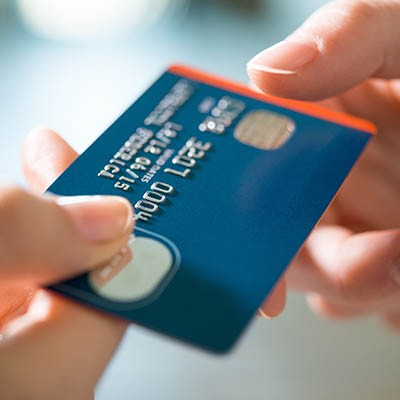- Home
- About Us
- IT Services
- Understanding IT
- Understanding Automation
- Understanding Ransomware
- Understanding Shadow IT
- Understanding Your Virtual Identity
- Understanding the Modern Office
- IT Threat Glossary
- Understanding Business Continuity
- Understanding the Internet of Things
- Understanding Network Security
- Understanding SOX
- Understanding BYOD
- Understanding PCI DSS
- Understanding HIPAA
- Cloud Computing
- Blog
- Support
- Contact Us
- Home
- About Us
-
IT Services
-
Understanding IT
- Understanding Automation
- Understanding Ransomware
- Understanding Shadow IT
- Understanding Your Virtual Identity
- Understanding the Modern Office
- IT Threat Glossary
- Understanding Business Continuity
- Understanding the Internet of Things
- Understanding Network Security
- Understanding SOX
- Understanding BYOD
- Understanding PCI DSS
- Understanding HIPAA
- Cloud Computing
- Blog
- Support
- Contact Us
Walsh IT Group Blog
Debit, Credit, or Neither?
With most everything having gone digital, most consumers have changed their preferred payment method. Many different factors contribute to credit cards becoming the most used payment. Today, we take a look at why this has become a popular means of payment, as well as weigh the pros and cons of credit cards.
Why Is Everyone Swiping?
When payday comes once a week or once every two weeks, how do you receive your paycheck? More than half of the US utilizes and relies on direct deposit. It’s no wonder cash has become a scarce payment method. Convenience is such a powerful underlying reason to ditch cash payment. What are the pros, and what are the cons to this convenience?
Let’s first talk about some of the pros. Security! Surely, not carrying a wad of cash in your pocket is a more secure method, right? Well, that depends on the type of card you’re carrying as well as the coverage the lender has agreed to.
If you have ever hidden something of value from yourself such as your license, cash, your wallet, or even car keys, then you know how it feels to be worried about your belongings. If you’ve ever fully lost one of these objects, you’re not the only one. So how would you proceed if you lost a few hundred dollars cash that was in your wallet? Well, this is where you discover the fact that a credit card is typically a superior payment method.
Borrow protection has become a standard in most lender scenarios. Most banks are FDIC (Federal Deposit Insurance Corporation) covered. Yes, in 1933 and even sometimes today, people had a hard time trusting banks with their money. These mattress-stuffers have failed to realize that in nearly every case your money is actually covered by insurance. With a credit or debit card, that few hundred dollars you lost would never actually leave the comfort of your bank account.
If some sort of fraudulent activity occurs where money actually disappears from your account for an unauthorized reason, lenders today are able to refund you while disabling the existing card, preventing recurring theft.
How Else are Cards Protected?
Credit and debit card utilization has caused strict standards of security to be implemented anywhere that accepts these forms of payment. These standards are referred to as the Payment Card Index Digital Security Standard, or PCI DSS. This mandates all businesses to protect data collected about the cardholder. This includes any and all information found on the user’s card. This information should NOT be stored, unless recurring billing or some other product or service improvement has been negotiated with the cardholder.
Here are some other protection methods which further prove the benefit to leaving cash at the bank:
- Dynamic Card Verification Values - Your CVV value is what can prevent someone from taking a picture of your credit card as you pull it out of your wallet from actually being able to make purchases with it. This value on the back of most payment cards adds that extra layer of security that could foil a determined thief. As technology changes, even these CVV often feel the effects. Today, some lenders provide cards that utilize a different value for each time of day.
- Mobile Wallet - While most of us have seen commercials of someone paying for goods or a service simply by holding their smartphone up to the reader, this technology has evolved into far more than a gimmick. This method of payment, if handled properly, can be an extremely convenient and secure means to purchase things.
- Biometrics - Biometric technology has come a long way in a short time. While the fingerprint scanner on your smartphone might keep your brother or significant other out of your device, it definitely isn’t something a lender would like to implement. However, as times change large deposits or withdrawals no longer need to leave you with an inked thumb print. Retina scanning and fingerprint scanning is slowly finding a place in financial organizations across the globe. These organizations range from South Africa, to European and Asian markets. Soon, they are likely to be found near you.
If you utilize payment cards, it is important to understand what technology and standards can and cannot do for you. Walsh IT Group has IT professionals on stand-by to answer any questions you may have about PCI DSS compliance and other payment options. Give us a call at (832) 295-1445 today!
About the author
Chief Amazement Officer
Mobile? Grab this Article!
Tag Cloud


Comments